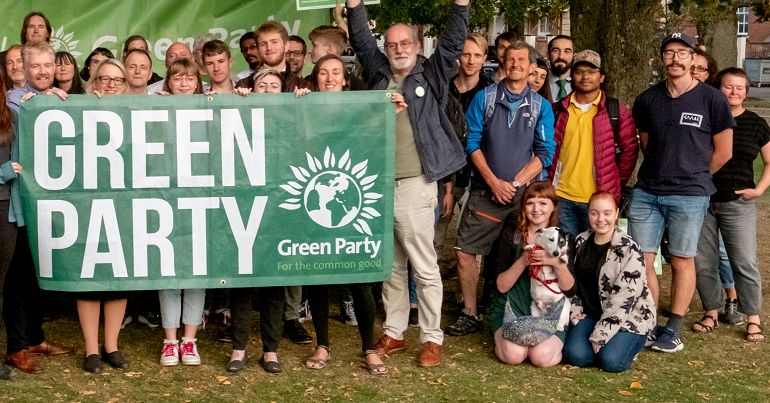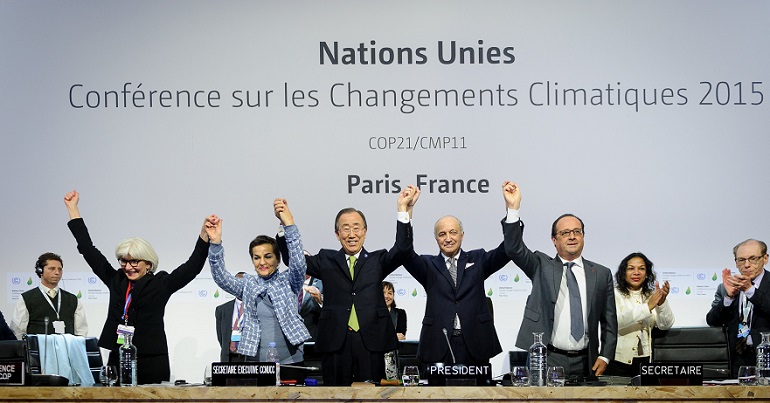UN climate deal on the brink ahead of Durban talks
The UN climate talks, COP17, begin at the end of November. This could be the last chance to save the current international climate deal. The first period of the Kyoto protocol ends in 2012 and rich industrialised countries are pushing to replace it with a system that is based on voluntary reductions in carbon emissions instead.
In the run up to the negotiations, we have produced a new briefing, Durban, a tipping point for the international climate talks which sets out what we see as the key issues facing us. There will be attempts to reach agreements on issues such as climate finance, technology adaptations and forests but it is possible that there will be no deal at all. There are three issues that we are particularly concerned about.
The role of the World Bank
At last years’ negotiations in Cancun, there was an agreement to set up a new green climate fund to provide funding to countries affected by climate change. But none of the key details were agreed – other than handing a central role to the World Bank
The widely discredited World Bank is attempting to reinvent itself as the institution of choice for climate finance and so far it looks to be succeeding. 80 per cent of the UKs climate finance, diverted from the aid budget, is being channelled through the Bank’s fund. Worse still, it is being given as loans rather than grants, pushing already debt-burdened countries further into unsustainable debt. The fund faces opposition from civil society in the South and even the UK government itself recently admitted that there are serious problems with it.
Nonetheless, rich countries favour the World Bank as it enables them to keep strict control over how the funding is allocated. On the bank’s board, countries like the UK and the US get one representative each, whereas all 47 sub-Saharan countries get just three. Even in making decisions, the ‘one person, one vote’ system does not apply. Instead it’s ‘one dollar, one vote’, automatically handing power to the richest and already most powerful countries.
The alternative, The UN Adaptation Fund, is a more legitimate and democratic institution. It was created through the UN climate process in 2008 and has the support of the 193 member countries. It has a balanced governance of representatives from all UN regions and only gives grants, never loans. Countries like Sweden, Spain and Germany have all pledged money to the UN fund, but the UK is refusing to.
The World Bank will not receive a warm welcome from campaigners in Durban. In Africa in particular, the Bank is synonymous with crushing debts created in partnership with brutal, authoritarian dictatorships, lack of transparency and pushing failed models of export-led growth and trade liberalisation. In addition, over the years it has been involved in numerous destructive projects that have a negative impact on the environment and human rights. Just a few days ago, for example, a briefing by Oxfam (PDF) revealed that the Bank had funded a forestry project that forced 20,000 people off their land in Uganda. The Bank’s recent funding for the building of the world’s fourth-largest coal fired power station in South Africa, will not have helped matters either.
Prioritising the private sector
Recently leaked documents show that it is unlikely that most of the money to meet rich countries pledges of providing the $100 billion a year needed to fight the effects of climate change will come from developed country governments. Instead, high-income countries are aiming to pass off their obligations to companies that prioritise profit-making over genuine climate actions.
A real danger is that the main way that this will be done is through carbon markets. Offsetting is controversial as it allows rich countries to continue with business as usual, while generating huge profits for the financial sector and passing the burden for cutting emissions back on to poorer countries. It is estimated that despite global carbon markets being valued at over $100 billion, only 0.5% of the money has actually gone to offset projects in developing countries. The rest goes to brokers, traders, verifiers and so on. In addition, as Friends of the Earth have shown (PDF), carbon trading does not even reduce emissions.
The death of Kyoto
Canada, Russia and Japan have declared that they will not agree to more legally binding emissions reductions under the Kyoto Protocol. Instead they want a new system which would not formally hold major emitting countries to account.
Countries that have grown rich through carbon-intensive growth have actually made weaker pledges than developing countries. It is looking increasingly likely that the emissions reductions of China, India, South Africa and Brazil will be higher than the seven largest high-income countries, the US, Japan, Canada, Australia, New Zeeland and Russia by 2020.
Weak pledges by the world’s largest carbon emitters could result in global temperature rises of five degrees Celsius. This would be catastrophic.
At the climate talks in South Africa, campaigners will demand that a rights-based approach to climate change replaces the current proposals on the table. The World Bank out of Climate Finance campaign will be there. The 200 million strong farmers movement La Via Campesina is calling for protests in Durban and around the world to promote real solutions to climate change. And campaigners from the World Development Movement will be joined by caravans of farmers and activists from all over Southern Africa.
Together, we will demand climate justice and say no to the World Bank.
This post first appeared on WDM’s Climate Debt blog.




Fascinating blog! Is your theme custom made or did you download it from somewhere?
A theme like yours with a few simple tweeks would
really make my blog stand out. Please let me know where you got your design.
With thanks